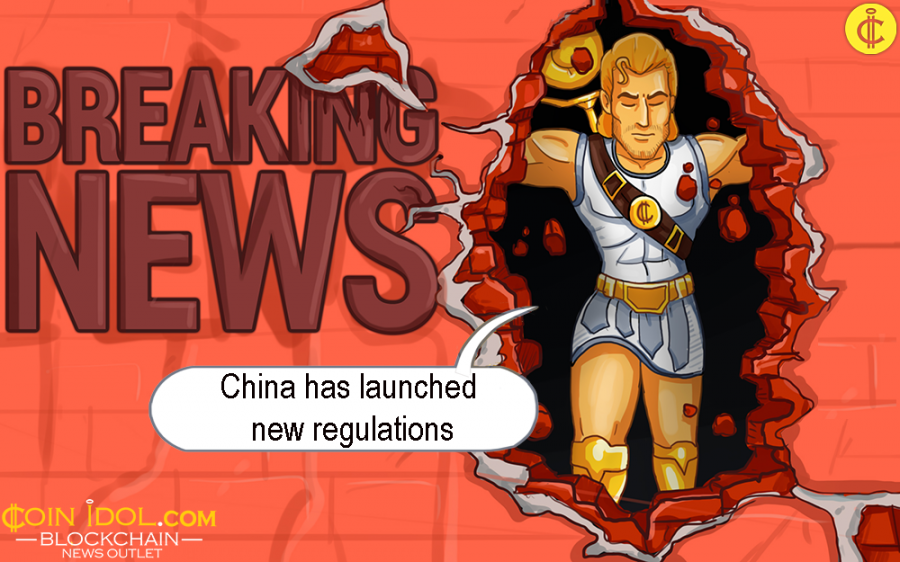China Denotes New Regulations for Blockchain Firms, Comes into Force on Feb 15
Updated: Jul 21, 2020 at 21:04

China has launched new regulations designed to promote the ‘healthy development’ of distributed ledger technology (DLT). The CAC denoted new regulations on Thursday, January 10, 2018. Nevertheless, the new law also gives the right to the Cyberspace Administration of China (CAC) to superintend node operators and to request private information (info).
China’s Office of CAC officially released new regulations titled “Regulations on the Management of Blockchain Information Services.” The new law will come into force on Tuesday Friday 15, 2018.
The regulations paint providers of “DLT info services” with a wide thicket defining that as the “provision of info services to the public via internet sites & uses-based on DLT or systems.”
Furthermore, DLT service providers can be an entity or node which offers the DLT info service to people and an organization or establishment which offers technical support for the DLT info service.
China issued draft guidelines in October last year, that were attempting to prevent unidentified (anonymous) DLT use.
The existing regulations are allegedly intended to boost the "healthy development of DLT and other related services,” but at what cost?
Criminals to be Subjected to Fines
Firstly, DLT service providers will be demanded to register their server addresses, service types, names, industry fields and changes carried out on them in the future with the CAC. This important info would be publicly available and accessible.
The new regulations state:
“The DLT info service provider shall implement the responsibility for info content security management, and establish and improve management systems like user registration, information review, emergency response, and security protection … If the customer does not perform real identity authentication, the DLT info service provider shall not offer related services.”
Put differently, the new law makes it prohibited by law for customers to download and execute bitcoin’s free & publicly available (usable) software client since a ‘DLT service provider’ can be a node which offers the DLT info service to the public.
If they want to do so, they have to pass through a registration exercise and surrender their private info. Maybe clients who want to avoid being charged a fine will use Tor. Tor is concealed service enabling several firewalls and network address translation apparatuses to be circumvented.
Presently, China accounts for a 3.98 percent (or 408) of all connectable BTC nodes, as per BitNodes data.
Stringent Regulations
To boot, the guidelines also require DLT service providers to grant authorities full access to their information and to have registration procedures where customers’ ID cards numbers are essential.
Users who fail to comply with the new regulations will be charged a fine. It appears that China’s stance on DLT and Cryptos remains very tight. Last month, however, the People’s Bank of China (PBoC) put a ban on security token offerings, according to a report by South China Morning Post.
Generally, the regulations appear fairly rigorous. It is yet to be observed how they affect firms within China. Considering the crypto breakdown in the year 2017, these regulations are expected. However, they might have a significant impact on neighboring India, which is also declaring cryptoasset regulations very soon, as Coinidol reported recently.
News
News
Coin expert

(0 comments)